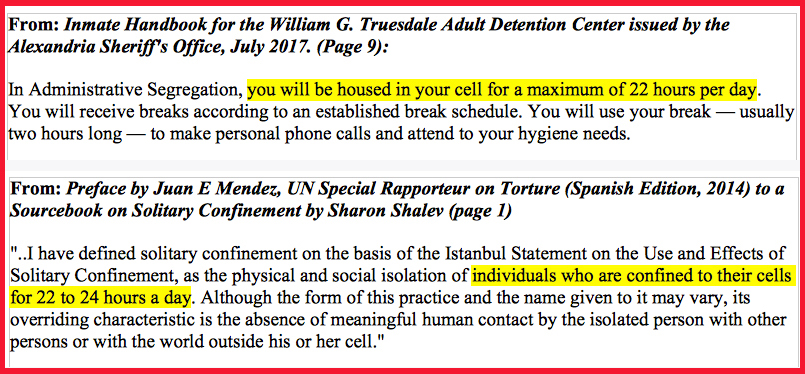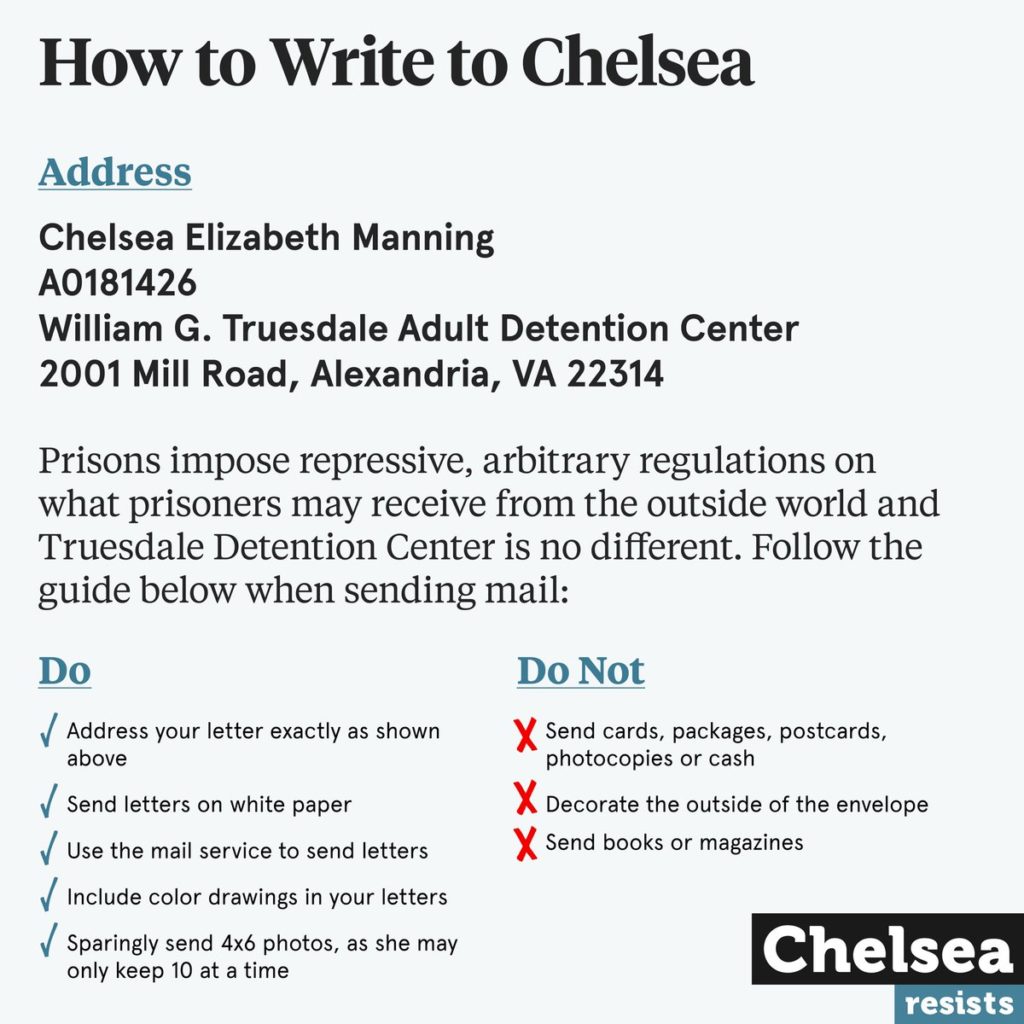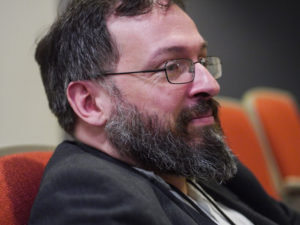Exhibit 1 to Chelsea and her legal team’s Motion for Reconsideration of Sanctions (Scribd) (SparrowMedia)
References cited in this letter.
May 28, 2019
Dear Judge Trenga,
During the contempt hearing on May 16,
2019, this Honorable Court directed me to take the opportunity during
my confinement to reflect on my principles with respect to the
institution of grand juries in the United States. This letter
responds to that directive.
During the hearing, you stated that
there exists “no dishonor” in providing evidence to a grand jury.
You suggested that codification of grand juries in the text of the
U.S. Constitution provided ample justification for this institution.
In response to my suggestion of “preliminary” or “committal”
hearings, you expressed skepticism over whether such publicly held
hearings served the same purpose without damaging innocent people
accused of crimes.
These arguments are raised frequently
in discussions about the problems with grand juries. They are
certainly not novel to me. Over the last decade, I frequently
considered these and many other arguments while forming my opinions
about the grand jury process. After spending the last two weeks
reflecting on my decision not to testify before this grand jury, I
wish to present my position in a more careful and complete manner
than an impromptu colloquy can provide. After working with lawyers
and researchers, I can also now cite specific sources that support my
position.
First, I shall compare grand juries in
their earliest form, including the ideals and practical problems they
sought to address, to grand juries as they currently operate. Second
I want to clarify that while my objection to grand juries emphasizes
their historical use against activists, I also view grand juries as
an institution that now undermines due process even when used as
intended.
The drafters of the U.S. Constitution,
despite their many flaws, possessed a sophisticated understanding of
modern political theory. The framers did not set out to short-circuit
due process protections. Obviously, to a contemporary reader, we now
understand the many flaws and compromises in the Constitution, and
see some as inherently cruel and indefensible: legal human slavery;
the legalizing of subordinate civil status for women; segregation;
and the disenfranchisement of those who did not own land come to
mind.
Some such practices might have struck contemporaries of the Constitution as “normal” or “necessary,” but with the passage of time, and through the tireless work of millions of people taking bold and dangerous action, they are now obsolete. I am certainly not alone in thinking that the grand jury process, which at one time acted as an independent body of citizens along the lines 2 of a civilian police review board, slowly transitioned into the unbridled arm of the police and prosecution in ways that run contrary to the grand jury’s originally intended purposes.(1)
The 5th Amendment provides many of our most cherished procedural safeguards, concepts foundational to our criminal legal system, including ‘due process,’ a prohibition on double jeopardy, and the right against compelled self-incrimination. The grand jury is also enshrined in the fifth amendment, however, prior to the recent publicity surrounding the Mueller investigation, most Americans only knew two things about the grand jury.
First, people hear that a grand jury could indict a ham sandwich. Early grand juries acted independently, as investigations by citizens. Now, the grand jury process means the prosecutor decides what the grand jurors see – and what they don’t see. The grand jury imagined by the drafters of the fifth amendment – which did not involve a prosecutor – bears no resemblance to what we see today, where more than 99.9% of indictments sought are granted.
Second, we learn another, more sinister thing about grand juries: they don’t indict law enforcement. For example, in Dallas over a stretch of several years, more than 80 police shootings came before grand juries. Only one returned an indictment.(2) Grand juries have protected police officers since the slave patrols. They were used to indict abolitionists, but not people capturing and re-enslaving people seeking freedom from bondage. They were used to indict reconstructionists, while actively protecting lynch mobs. Both the ‘ham sandwich’ statement and selective indictment happen because of grand jury secrecy.
Also, a prosecutor’s presentation of a case is shaped by their own ideas and goals. There does not need to be any misconduct or bad intent on the part of a prosecutor to influence the grand jurors in a way that destroys their independence. If you look at legal scholarship about the history of the grand jury, you can see how today’s grand juries are unrecognizable from English and early American ones. The original grand jury was more than an investigator; they were supposed to protect citizens not just from unjust indictments but from unjust laws. In England, grand jurors who even allowed a prosecutor to come into the grand jury room were seen as having violated their oath.(3)
I am positive that the founders never intended the grand jury to function like those we see today. If grand juries were actually independent bodies that nullified unjust laws or their unjust application, to determine whether it was really in the public interest to decide who should be made “infamous” under the law, I would feel differently. Reading the history of grand juries, I have read of how during the American Revolutionary war, grand jurors refused to indict tax resisters against the crown, because while it was technically illegal, the grand jurors recognized that what made it a criminal act was a law imposed by an authority that most of them by that time did not recognize (4). Nonetheless, the grand jury once provided a modicum of due process, at least to the class of people to whom due process was made available.
In 2019, the federal grand jury exists
as a mockery of the institution that once stood against the whims of
monarchs. It undermines the Fourth Amendment’s protections against
unreasonable search and seizure, and the Fifth Amendment’s
guarantees of due process. Today’s grand juries do not safeguard
such fundamental rights, and they are easily subject to abuse.
Secret proceedings lend unearned
legitimacy to prosecutorial decisions that protect the powerful
against accountability and over-punish the marginalized. It is not
surprising that members of the defense bar are generally unsupportive
of grand jury proceedings. Even the Department of Justice released a
report acknowledging that “grand juries are notorious for being
‘rubber stamps’ for the prosecutor for virtually all routine
criminal matters.” (5) Moreover, because prosecutors can compel people to show up and testify or produce documents to the grand jury without having to show probable cause, their unmonitored subpoena power functions to let them side-step the Fourth Amendment’s protections against unreasonable searches and seizures.
Imagine a world in which you were not a judge and were not connected to judges and prosecutors personally. If you or a loved one has charges brought before a grand jury, charges of which you or they were innocent, would you believe for one moment that the grand jury might not indict? What rights, specifically, would you consider safeguarded by the fifth amendment’s provision for a grand jury? Consider that it is more than six times as likely that you will be struck by lightning than that a federal grand jury will decline to indict. I object to grand juries even when used in the ways that are typically understood to be legitimate.
The ability of grand juries to be abused or used for political ends is entrenched and perpetuated by the fact that jeopardy doesn’t attach with a grand jury, so prosecutors can repeatedly bring the same changes. Even though there are some laws that say prosecutors must either show they have new evidence or that it is in the public interest to extend or reconvene a grand jury, this is hardly an obstacle. For instance, Thomas Jefferson had to convene three separate grand juries in order to indict Aaron Burr for sedition – but he was able to continue to convene those grand juries until he obtained that indictment.
Additionally, in the Antebellum South, grand juries routinely indicted anti-slavery activists for sedition, while those in the North sometimes refused — but charges would re-presented to new grand juries until they stuck. In 1968, a San Francisco Grand Jury was asked by Mayor Alioto to investigate the Black Panther Party. They refused, and the foreman gave a press conference about political overreach. Unfortunately, in 1969, a new grand jury began an investigation.
These examples run to the political,
but grand jury shopping is something that can be done with any kind
of case. Grand juries can also be used to coerce defendants to give
up their trial rights and take pleas, both by threatening to indict
for more severe charges than are
warranted (which we know can be done
easily), or by threatening to call a defendant’s loved ones before
a grand jury as witnesses. The very threat of the secret proceeding
is in itself terrifying to people. The secrecy of grand jury
proceedings fuel paranoia and fear, running contrary to our ideals of
open courts and stoking our disdain for secret testimony. I find,
when I explain the secrecy of grand juries, people are often truly
shocked that they are constitutional, and frequently compare them to
the Court of Star Chamber.
The Court of the Star Chamber existed
in England from the 15th to 17th centuries. This court lacked the
same procedures as normal courts, and often pursued political and
religious dissidents, and others who “sinned” against the crown.
It lacked evidentiary standards and proceeded on rumor and hearsay.
It imposed all kinds of arbitrary punishments, except the death
penalty. In 1641, Parliament abolished the Court of Star Chamber as a
dangerous relic of the past for its brutality and capriciousness. The
grand jury was once a progressive and protective replacement for
things like the Star Chamber, but in its current incarnation it bears
far more resemblance to the Court of the Star Chamber than to its
intended role as a bulwark against arbitrary state power. Apart from
the fact that the grand jury itself does not impose punishments, the
biggest difference between the grand jury and the Court of the Star
Chamber is that Star Chamber proceedings were in fact largely open to
the public.
I am not alone in objecting to the
grand jury as a dangerous relic that has evolved in ways that
increase its power without increasing its protections. This is not
even a partisan issue. For instance, even the Cato Institute has made
statements critical of the grand jury:
Prosecutors defend their actions by reminding everyone that legislators have approved the procedures. Legislators defend what they have done by reminding everyone that the courts have approved the procedures. Judges defend what they have done by reminding everyone that prosecutors and legislators are free to do otherwise—and that the people seem content since they have not revolted against the elected officials who run the system. Citizens, in turn, too often assume that someone in the government is looking out for their welfare, including their constitutional rights. No one takes responsibility for the fact that constitutional rights are slipping away. (6)
During the hearing on the 16th, you
pointedly asked me whether I had taken an oath to uphold the
constitution. What is more important than my willingness to blindly
follow that document is my commitment to its general principles of
due process and fundamental rights. I refuse to participate in a
process that has clearly transformed into something that violates the
spirit if not the letter of the law. Since I reject the grand jury
process, I am totally ready to propose alternatives to it and point
out that such alternatives already exist.
Only two common law systems of justice use the grand jury: the United States and Liberia. Even within the United States, half of the states have dispensed with the use of grand juries. While they reliably end with indictments, they do not reliably end with justice. While the grand jury is anomalous in the world, other countries are nevertheless able to prosecute people, demonstrating that there are alternatives to the grand jury.
While the United States is one of two
countries to maintain a grand jury system, countries that used to
have grand juries include England, Scotland, Ireland, Canada,
Australia, New Zealand, South Africa, France, Belgium, Japan and
Sierra Leone. In those countries, grand jury proceedings have been
replaced by an open and adversarial “preliminary” or “committal”
hearing system. Additionally, the United States military, through the
Uniform Code of Military Justice, 10 U.S.C. §801 et seq, sets forth
procedures for preliminary hearings, rather than grand juries,
providing service members with significantly more protections than
the average person.
Preliminary hearings throw open the
doors to the best of all disinfectants: sunshine. Nearly every
country that used grand juries replaced it with these hearings, which
save time and expense, don’t criminalize refusal to comply with
prosecutorial whims, and better equip all parties to prepare for
fairer and more balanced inquiries into the truth of matters. There
exists no shortage of due process and nothing prevents a witness who
wishes to remain anonymous from speaking to law enforcement or the
prosecution. A common justification for grand jury secrecy is to
preserve the reputation of those investigated. First of all, as
noted, almost nobody investigated by a grand jury is not indicted.
Moreover, in countries that have preliminary hearings, people have an
opportunity to defend themselves, and simply being investigated does
not end in ruin.
Now, I want to address my specific
concerns about the ways in which grand juries can be used
politically.
Across the world and throughout history, it has been common practice to incarcerate or even kill dissidents and political rivals on the mere suspicion of being a member of an opposition group. While in the United States we are perhaps less overt in our persecution of dissidents most of the time, the grand jury subpoena combined with compulsory immunity gives unrestrained powers to U.S. prosecutors to oppress activists and their communities. Generally, people have no obligation to cooperate with law enforcement investigations. But in the context of a grand jury subpoena, people who refuse to talk about their first amendment beliefs and associations can be locked away via contempt.
During the McCarthy era, when people were publicly interrogated about their beliefs and associations, the public was eventually outraged, and the McCarthy hearings are widely seen as a disgraceful episode of modern history. This kind of questioning, however, routinely happens under the grand jury system. Due to the secrecy of grand juries, the public is less aware of it, and less outraged, and therefore, it continues without interruption. However, this is because they are unaware it is happening and cannot feel its effects.
The investigative grand jury as we
know it was developed in the wake of McCarthy, during the Nixon
years. It was developed purportedly to battle organized crime, but
was promptly used to subpoena members of anti-war groups, the women’s
movement, and black liberation groups. Prosecutors issued subpoenas
in conjunction with grants of immunity, in order to compel testimony,
and routinely had resistant activists imprisoned for contempt. For
instance, while federal agencies were investigating the Puerto Rican
independence movement, several community organizers refused to comply
out of solidarity with their communities. They were arrested at
gunpoint for contempt of court.
6
Senator Ted Kennedy was not shy
about expressing his alarm:
“Over the past four years, under the
present administration, we have witnessed the birth of a new breed of
political animal — the kangaroo grand jury — spawned in a dark
corner of the Department of Justice, nourished by an administration
bent on twisting law enforcement to serve its own political ends, a
dangerous modern form of Star Chamber secret inquisition that is
trampling the rights of American citizens from coast to coast.” (7)
The tradition of using political grand
juries to jail political dissidents and activists is long. The
concept of a grand jury in which prosecutors subpoena activists and
jail them for refusing to comply with the subpoena stands in stark
contrast to the institution contemplated in the Constitution.
The foregoing is intended to give you a
better and more nuanced understanding of my conscientious objection
to the grand jury. I understand the idea that as a civil contemnor, I
hold the key to my cell – that I can free myself by talking to the
grand jury. While I may hold the key to my cell, it is held in the
beating heart of all I believe. To retrieve that key and do what you
are asking of me, your honor, I would have to cut the key out, which
would mean killing everything that I hold dear, and the beliefs that
have defined my path.
Each person must make the world we
want to live in around us where we stand. I believe in due process,
freedom of the press, and a transparent court system. I object to the
use of grand juries as tools to tear apart vulnerable communities. I
object to this grand jury in particular as an effort to frighten
journalists and publishers, who serve a crucial public good. I have
had these values since I was a child, and I’ve had years of
confinement to reflect on them. For much of that time, I depended for
survival on my values, my decisions, and my conscience. I will not
abandon them now.
Sincerely,
Chelsea Manning
**end**
References:
1. District Judge Edward Becker concluded, without chagrin, that it is true, generally, that “the grand jury is essentially controlled by the United States Attorney and is his prosecutorial tool” Robert Hawthorne, Inc. v. Dir. of Internal Revenue, 406 F. Supp. 1098, 1119 (E.D. Pa. 1975) https://law.justia.com/cases/federal/district-courts/FSupp/406/1098/2143411/
2. A grand jury could ‘indict a ham sandwich’, but apparently not a white police officer – The Guardian, Tuesday 25 November 2014 – As reprinted in The Independent: https://my.independent.co.uk/news/world/americas/a-grand-jury-could-indict-a-ham-sandwich-but-apparently-not-a-white-police-officer-9882529.html
3. Roots, Roger, PhD, (2010) Grand Juries Gone Wrong
Roots, Roger, Grand Juries Gone Wrong (2011). Richmond Journal of Law & Public Interest, Vol. 14, p. 331, 2010. Available at SSRN: https://ssrn.com/abstract=1771994
4. The Improper Use of the Federal Grand Jury: An Instrument for the Internment of Political Activists, Michael E. Deutsch, 1984 Northwestern School of Law https://peopleslawoffice.com/improper-use-of-federal-grand-jury-michael-deutsch-political-repression/
5. Plea Bargaining: Critical Issues and Common Practices, by William F. McDonald, (U.S. DOJ, National Institute of Justice, 1985) https://digitalcommons.law.ggu.edu/nij-ojp/31/
6. W. Thomas Dillard, Stephen R. Johnson, and Timothy Lynch, A Grand Façade How the Grand Jury Was Captured by Government, Policy Analysis 1–18 (2003). https://www.cato.org/publications/policy-analysis/grand-facade-how-grand-jury-was-captured-government
7. Washington Post, March 14, 1972, at 2, col. 3
Editor’s Note: Reference #7, which we were unable to find an online copy of, is also mentioned in Reference(4) above:
Testifying before a House Judiciary sub-committee investigating the tactics of an ISD grand jury which had subpoenaed five pro-Republican Irish-Americans from New York to a grand jury in Fort [*1182] Worth, Texas, n105 Senator Edward M. Kennedy captured the essence of the Nixonian use of the grand jury:
Over the past four years, under the present administration, we have witnessed the birth of a new breed of political animal — the kangaroo grand jury — spawned in a dark corner of the Department of Justice, nourished by an administration bent on twisting law enforcement to serve its own political ends, a dangerous modern form of Star Chamber secret inquisition that is trampling the rights of American citizens from coast to coast.















